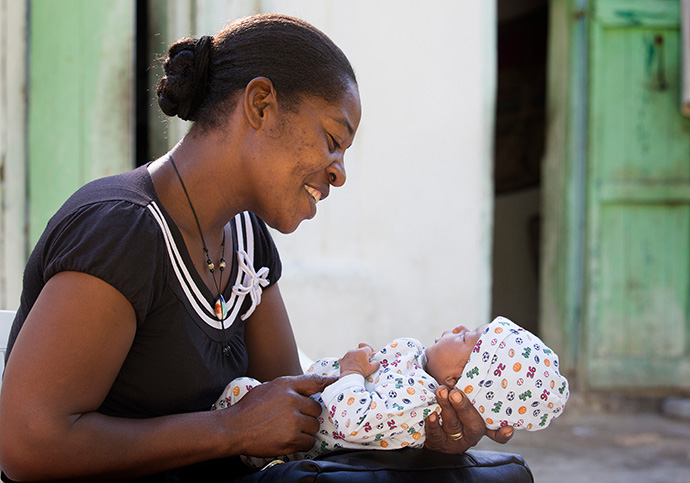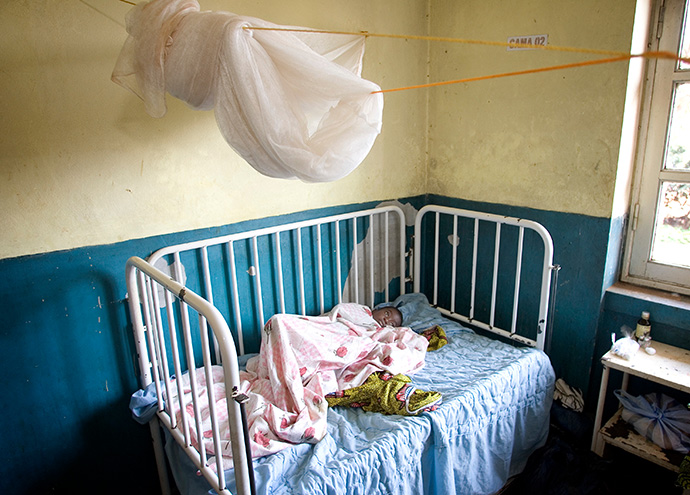Key points:
- The United Methodist Board of Global Ministries met online May 11-12 to approve spending priorities.
- The Bishop Yambasu Agricultural Initiative continues to be a top priority, with $3.5 million approved for projects in Africa.
- More than $1.7 million in grants were approved to support global health efforts.
The United Methodist Board of Global Ministries approved more than $13 million in grants and disbursements during its May 11-12 spring virtual meeting, including $3.5 million to help realize a late bishop’s dream of making The United Methodist Church in Africa self-sufficient through agriculture.
More than $1.7 million went toward projects to improve the health of people around the globe through better infrastructure, training, medicines and medical supplies.
In a closing prayer on May 12, Bishop Hee-Soo Jung of the Wisconsin Conference, also president of the Board of Global Ministries, stressed the long view of the agency’s work.
“The kingdom is … beyond our vision,” he said. “We accomplish in a lifetime only a tiny fraction of the magnificent enterprise.”
The seeds being planted by today’s Global Ministries projects will grow to crops that future generations will benefit from and tend, he said.
“We may never see the end results,” Jung said. “But that is the difference between the master builder and the worker. We are workers, not master builders.”

The Bishop Yambasu Agricultural Initiative, which was launched by Global Ministries in 2018 and was renamed in honor of Bishop John K. Yambasu after his August 2020 death in a traffic accident in Sierra Leone, received $3.5 million. Yambasu was bishop of the Sierra Leone Conference from 2008 until his death, and held other leadership positions in the church.
The initiative has already awarded about $3 million in grants to 12 African conferences.
The 2022-23 strategy for the Bishop Yambasu Agricultural Initiative is to scale up production and marketing to commercial-scale levels.
“I think this is a really worthwhile cause,” said Roland Fernandes, top executive at Global Ministries. “And I think we've had great support from the episcopal areas in Africa for it.”
Another $2 million was approved for central conferences in Africa to help them increase their administrative capabilities and financial sustainability so they can effectively manage their growing churches. A separate $1 million award will be used to fund gatherings for missionaries, staff and mission partners.
More than $1.7 million in smaller grants were approved to support global health efforts around the world. The grants include nearly $627,000 to fund the Imagine No Malaria campaign in Zimbabwe, Angola, Burundi, Nigeria and Congo. Almost $955,000 was approved to strengthen health care in Sierra Leone, Haiti, Burundi, Nigeria and Congo.
“I, representing our team, bring these grants to you,” said Kathleen Griffin, a senior technical advisor for the Global Health unit at Global Ministries. “They represent people, people, people, and we thank you for your consideration and our partnership with these communities.”

United Methodist Committee on Relief grants totaled more than $7.8 million. The grants include:
- nearly $600,000 to provide legal services in Houston, Florida and New York City to migrants fleeing violence;
- just over $100,000 for Haiti Assets for Peace International to strengthen that nation’s health system;
- $25,000 to help migrant workers in Hong Kong;
- $30,000 for counseling and support of refugees and asylum seekers in Germany;
- nearly $48,000 to protect and counsel LGBTI children, adolescents and their families in El Salvador, where discrimination because of sexual orientation is widespread;
- $50,000 for assistance of refugees from Rwanda, Burundi and Somalia in Congo;
- $50,000 to provide free legal assistance and advocacy to asylum seekers in Greece;
- $50,000 to provide care and protection for violence-affected people in El Salvador; and
- a little over $50,000 to provide assistance to returning trafficked Filipino overseas workers.
New York Conference Bishop Thomas J. Bickerton told meeting attendees that Global Ministries needed to push forward during this “latest of versions of the worst of times.” He cited the global COVID-19 pandemic, mental health deterioration, racism, the war in Ukraine, wildfires, droughts, hurricanes and the likely splintering of the United Methodist denomination.
“But let us remember we are not the first generation to deal with what feels like insurmountable obstacles,” Bickerton said, citing the hard life of the disciples tasked with spreading the Gospel after the death and resurrection of Jesus.
“But look at what history reveals,” he said. “These people did the best of things during the worst of times in spite of the myriad of injustices inflicted upon them, and because of their efforts and inspiration, we are here today. Because of God's grace at work in them we are here today.
“Guess whose turn it is now?” he added. “We are the generation who's being called upon to deal with the challenges in front of us.”
Patterson is a UM News reporter in Nashville, Tennessee. Contact him at 615-742-5470 or [email protected]. To read more United Methodist news, subscribe to the free Daily or Weekly Digests.




